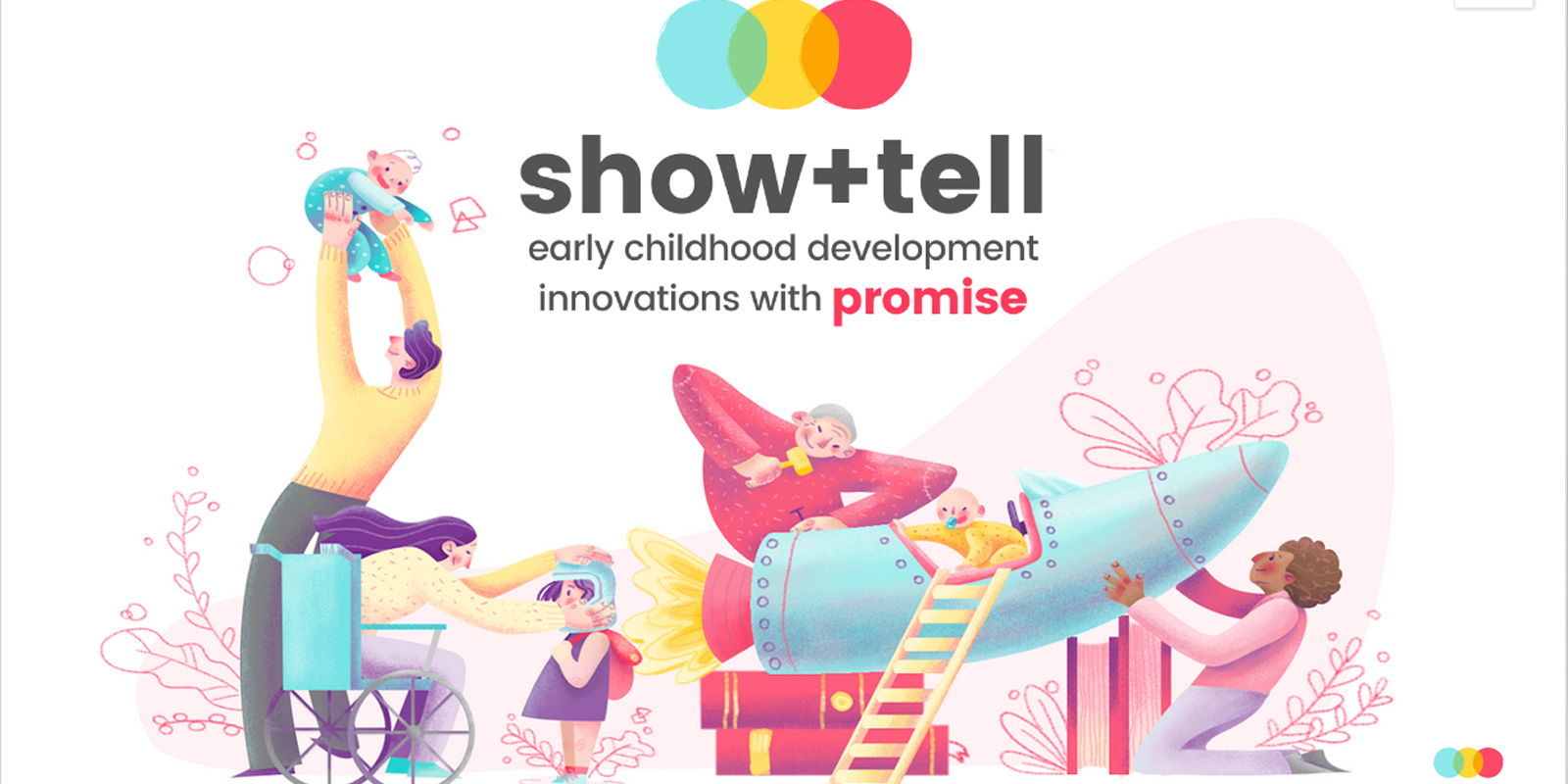Because we can’t take our Early Learning Nation Studio on the road during this time, stay tuned as ELN recaps Top Takeaways from important webinars, chats and virtual events from the Early Learning field. Join the conversation! And visit our Early Learning Nation channel on YouTube for interviews with leaders from education, child development, business, politics and more.
On June 10, Promise Venture Studio hosted a “Show +Tell” of recent innovations in early childhood education. Entrepreneur-in-Residence Chelsea Sprayregen and senior advisor Kai-leé Berke served as our online hosts.
👉 Read more: Big Plans for Little Kids
During the two-hour series, attendees heard nearly 20 entrepreneurs pitch their solutions for accessible, affordable and quality child care in the United States. Our notes below highlight some of the featured companies:
1. Online Solutions
- About half of U.S. child care providers won’t appear in a Google search, leaving parents short of solutions and caregivers short of clients. With input from parents and providers in communities across the country, Winnie is a trusted marketplace. The New York Times calls it App Time for Nap Time.
- Wiggle Room is especially useful for identifying caregivers in a pinch. Parents can complete a quick form from their phone, prompting the app to contact close family and friends, who opt in or out of the opportunity to help look after the child. Wiggle Room manages logistics, enabling parents to navigate unplanned child care needs with confidence.
2.Physical Spaces
- To address the child care shortage, Build Up San Mateo County collaborates with developers and community partners to increase brick-and-mortar facilities to house much-needed early learning programs. These intentional buildings boost families’ economic opportunities, from employment to housing, and improve children’s learning at critical development stages.
- Found in cities across the country, Wildflower Schools blend home and institutional schooling — often in storefronts. The solution is ideal for smaller groups; the largest Wildflower School has just two rooms and 39 children. This structure builds on the premise that smaller schools encourage community and support among the families, teachers and children.
3.Quality Interventions
- C.C. Busy uses voice assistance technology to help providers manage the flood of required paperwork. “Paperwork doesn’t take care of children, providers do,” says cofounder Shimira Williams. Implementation is simple and requires minimal equipment.
- Most children under 5 spend more than 60 percent of their waking hours with teachers and providers. To better equip these professionals, LENA offers programs and a wearable device to measure talk and accelerate the language development of children, closing opportunity gaps. LENA provides data-backed reports to providers along with custom coaching to boost quality interactions.
4.Networks and Partnerships
- In partnership with The University of Virginia, Teachstone implements the training tool CLASS (the Classroom Assessment Scoring System) and Quality Rating Improvement Systems to help organizations conduct classroom observations and provide professional development so that teachers improve and children learn more. They believe that with training and metrics to measure results, positive improvements are possible in all teaching settings.
- All Our Kin trains, supports and sustains community child care providers to ensure that children and families have the foundation needed to succeed in school and in life. Professionals are provided opportunities to obtain licensing, training and support to be business owners. This foundation lays the groundwork for achievement in homes, schools and beyond.
5.Higher Education
- EarlyEdU Alliance offers evidence-based, interactive courses aiding current and future early child care educators with obtaining teaching credits that count toward a degree. The free online courses remove the barriers of traditional higher education learning, making it more accessible, affordable and relevant.
- The Institute For Early Education Leadership and Innovation at the University of Massachusetts Boston trains early educators in entrepreneurial leadership and research systems to support them at scale. The program’s “know, believe, do” curriculum empowers educators to see themselves as change agents.
Search the Venture Database for contact information, videos and pitch decks, and subscribe here for updates from Promise Venture.

Mark Swartz
Mark Swartz writes about efforts to improve early care and education as well as developments in the U.S. care economy. He lives in Maryland.



